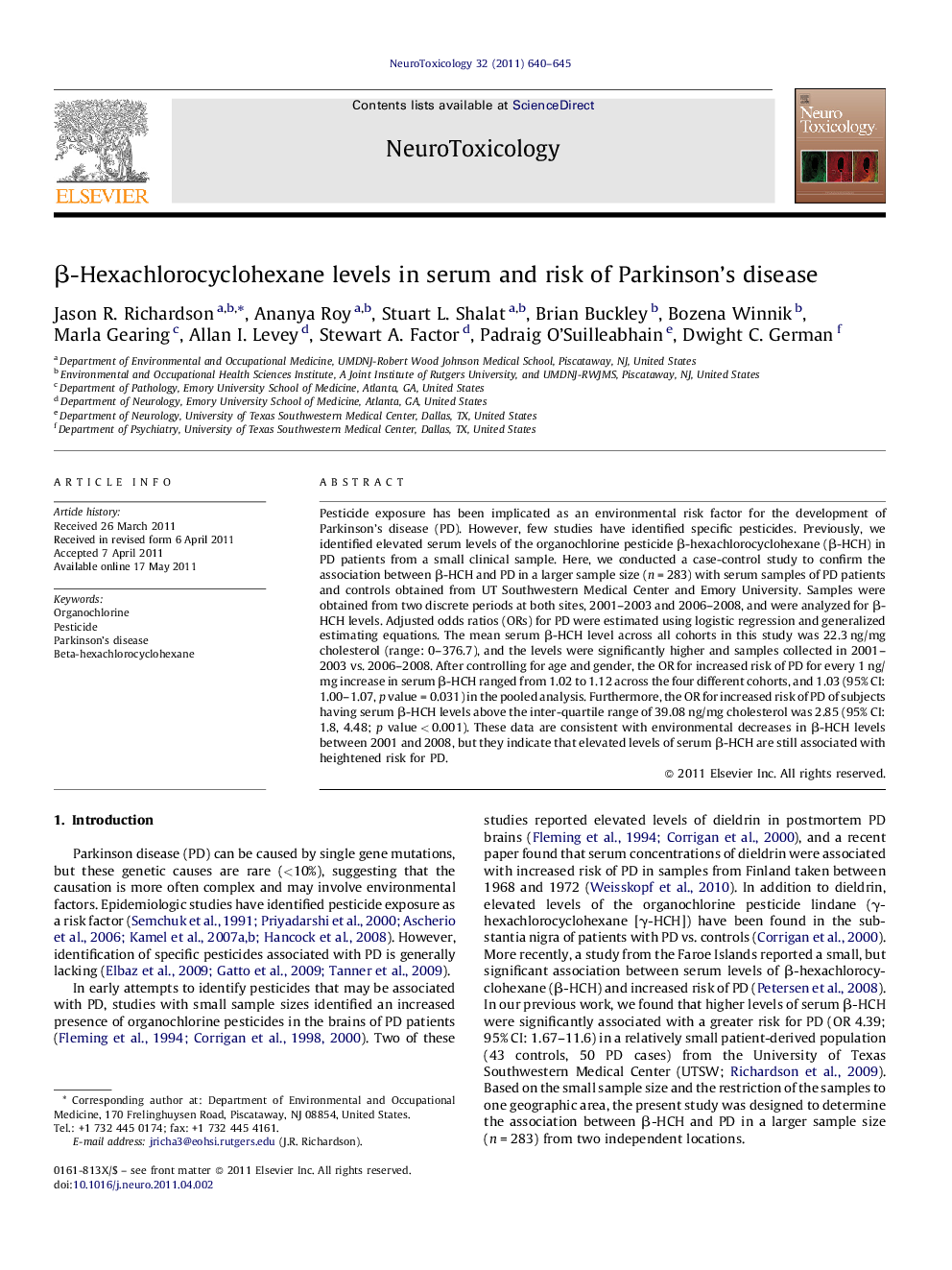| Article ID | Journal | Published Year | Pages | File Type |
|---|---|---|---|---|
| 2589971 | NeuroToxicology | 2011 | 6 Pages |
Pesticide exposure has been implicated as an environmental risk factor for the development of Parkinson's disease (PD). However, few studies have identified specific pesticides. Previously, we identified elevated serum levels of the organochlorine pesticide β-hexachlorocyclohexane (β-HCH) in PD patients from a small clinical sample. Here, we conducted a case-control study to confirm the association between β-HCH and PD in a larger sample size (n = 283) with serum samples of PD patients and controls obtained from UT Southwestern Medical Center and Emory University. Samples were obtained from two discrete periods at both sites, 2001–2003 and 2006–2008, and were analyzed for β-HCH levels. Adjusted odds ratios (ORs) for PD were estimated using logistic regression and generalized estimating equations. The mean serum β-HCH level across all cohorts in this study was 22.3 ng/mg cholesterol (range: 0–376.7), and the levels were significantly higher and samples collected in 2001–2003 vs. 2006–2008. After controlling for age and gender, the OR for increased risk of PD for every 1 ng/mg increase in serum β-HCH ranged from 1.02 to 1.12 across the four different cohorts, and 1.03 (95% CI: 1.00–1.07, p value = 0.031) in the pooled analysis. Furthermore, the OR for increased risk of PD of subjects having serum β-HCH levels above the inter-quartile range of 39.08 ng/mg cholesterol was 2.85 (95% CI: 1.8, 4.48; p value < 0.001). These data are consistent with environmental decreases in β-HCH levels between 2001 and 2008, but they indicate that elevated levels of serum β-HCH are still associated with heightened risk for PD.
► Pesticide exposure is an environmental risk factor for Parkinson's disease (PD). However, few studies have identified specific pesticides. ► The OR for increased risk of PD of subjects having serum β-HCH levels above the inter-quartile range of 39.08 ng/mg cholesterol was 2.85 (95% CI: 1.8, 4.48; p value < 0.001). ► Although environmental levels of β-HCH have decreased between 2001 and 2008, elevated levels of serum β-HCH are still associated with heightened risk for PD.
